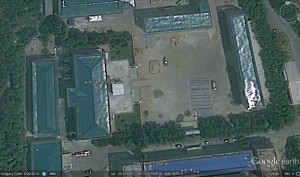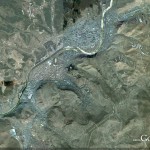Part 1: The Illogicality of Anti-Socialist Policy
Lee Seok Young
2011-6-22
In North Korea today, those actions which are subject to the harshest oversight and most excessive punishment are those deemed anti-socialist, an expression of the extent to which such actions are seen as a threat to the regime.
Yet these very actions have already taken deep root in people’s lifestyles, spreading rapidly as a result of chronic economic difficulties, food insecurity, endemic corruption and the inflow of information from abroad.
First of all, every North Korean and defector the Daily NK meets says much the same thing; that if people had not followed an ‘anti-socialist’ path during the mid-90s famine, they could not have survived. The power which maintains North Korean society through the hardest times is that derived from anti-socialist actions, and it is those actions which the authorities would like to put an end to.
The blocking of these so-called ‘anti-socialist trends’ nominally began with Kim Jong Il’s 1992 work, ‘Socialism Is a Science’, issued following the fall of the Eastern Bloc. A time of great fear for the regime, ‘Socialism Is a Science’ expressed a determination to block out anti-socialist phenomena.
However, a famine exploded nationwide shortly after the publication of the thesis, placing these very anti-socialist modes of behavior at the core of the lives of almost everybody in the nation.
Having completely replaced Kim Jong Il and the Chosun Workers’ Party as the alpha provider of sustenance, money is now uppermost in the minds of the people. If they can, they are moving away from the collective farms, factories and enterprises to become more active in the market.
“At a time when the state didn’t provide rations and workers were not even receiving their monthly wages, the ones who started trading early on were all best able to avoid this predicament,” said one defector, “Others followed after their example and, rather than trying to find work, went straight into the market.”
Money, then, is the fundamental toxin that now threatens to shake the very basis of the Kim regime, completely undermining the ‘let’s work the same, have the same and live well’ lifestyle that the regime has long been demanding from the people.The authorities, as part of a losing battle to halt this slide, ‘educates’ the people with the mantra, “Don’t become a slave to money,” but it makes no difference.
People are growing more and more money-oriented. What simply began as a desperate rearguard action to survive extreme poverty has become a preoccupation with accumulating wealth. The many who don’t have the capital to start a business are keen to work with those who do.
One interviewee, a woman hailing from North Hamkyung Province, told The Daily NK, “They have to keep trying, but they can’t eliminate it. How could they, when the state itself is actually encouraging its spread? Everywhere you go, they demand bribes, and people with money never get punished even when clearly guilty, because everyone is desperate to earn money.”
Given that the central authorities demand Party funds from regional bodies, and regional Party and military cadres in turn work with smugglers, and the cadres charged with inspection turn a blind eye to criminal acts in exchange for bribes, the whole system is, as the interviewee said, rotten from the top down.
One defector who left his position as a cadre in a Yangkang Province enterprise agreed, recalling, “The Party periodically collected money from our factory, but since all the machinery had long since stopped running, they made us work in the market and give 30% of the profits to the authorities. It was the state that promoted anti-socialism in consequence.”
Another defector originally from North Hamkyung Province said in a similar vein, “The National Security and People’s Safety agents stationed on provincial borders stop people without the right permit to travel, but let them pass in exchange for a few packs of cigarettes. Some even ask for your wrist watch. It’s not just the people; the whole nation is busy being anti-socialist.”
Increasing exposure to foreign materials is also influencing the situation somewhat. Such things are especially popular with students and women working in the markets, two groups which are more up-to-date than most.
South Korean and Western culture is being transmitted quickly via DVD, and materials that are brought into the state from China by traders and smugglers are also pushing forward new trends such as the ‘Korean Wave.’
To the North Korean people, who once lived in near complete isolation from the rest of the world, the introduction of foreign materials has intensified their yearnings for a new life style. The stricter the regulations become, the thirstier for something else the people become.
Part 2: Crackdowns Enhancing Anti-Socialist Cycle
Mok Yong Jae
2011-06-23
‘Anti-socialism’ in North Korea is a destabilizing force disturbing the foundations of the system. For that reason, the authorities place a great emphasis on rooting it out. Inspections are frequent and their targets varied. But the fact is that this has done little to stop the growth of such activities; in fact, quite the opposite; some believe that targeted inspections actually increase instances of smuggling, for example.
These focused inspections are handed down in the name of the ‘Party Center’ in other words Kim Jong Il. The latest inspections over anti-socialist trends in border areas have been being carried out by Kim Jong Eun’s direct instruction. First people are educated about and warned against ‘anti-socialist behavior’, then provincial Party and military cadres launch an inspection.
If a concerted inspection is to be unleashed on a given area, an inspection unit is set up, and it does the work. In the case of recent inspections targeting drugs and defection, the inspection units have even been sent from the Central Committee of the Party. The makeup of the unit can differ slightly depending on the target of the inspection, but usually includes agents from the National Security Agency (NSA), People’s Safety Ministry and Prosecutors Office. Precise search sites are usually selected at random and the searches conducted without warning, while ‘criminals’ are flushed out in part by getting citizens to report on one another.
However, the effectiveness of this system has a limit. This is primarily due to an overwhelming degree of official corruption at nearly all levels.
The Spread of Bureaucracy and the Limits of Inspections
The primary agents conducting the inspections, agents from the NSA and PSM, collude with smugglers for their own benefit. Anti-socialist activities are not a new means of survival, and the more commonplace the inspections become, the more focused the agents doing it become on their own self-interest; i.e. rent seeking rather than uncovering instances of wrongdoing.
For example, agents seek out big smugglers only in order to offer them an opportunity for their actions to be ignored, something they will do for a price. A source from Yangkang Province explained to The Daily NK, “Hoping not to lose their goods, also so as to avoid prison, in many cases smugglers try to win over agents. They talk to the official for a while, and if they think ‘this guy can be won over’ then some even gently encourage them to find a way to forego any punishment.”
Then, when the inspecting agents begin dropping heavy hints about expensive merchandise, electronics or a piano, for example, the smugglers say, “I’d be delighted to buy that for you,” and for that receive their freedom.
Thus, it is rare for money to change hands directly; goods are bought in China and handed over when the inspection period has come to a close. The smuggler also obtains a permit to import a certain amount of other goods without penalty in the future. By winning over agents in this way, assistance in future times of trouble can also be secured.
In addition, as Lee Jae Won, the former chairman of the Korean Bar Association Committee on Human Rights in North Korea and someone who has interviewed a great number of defectors as author of the 2010 White Paper on Human Rights in North Korea, concludes, “Anti-socialist activities are extremely common for North Korean cadres in public positions such as prosecutors and judges.” The bribing of prosecutors and judges in exchange for leniency or to escape conviction is a daily occurrence, as much as bribing the security forces and cadres.
What Anti-socialist Counteroffensive? Officials are the source of Antisocialism
Now much more so than in the past, cadres and agents are directly involved in the antisocialist activities.
A Chinese-Korean trader who often goes between Dandong and Shinuiju told The Daily NK, “There are so many drugs in North Korea that even the officers supposed to be policing it are taking drugs themselves. Some of them even asked me to take opium to China and sell it. I go back to North Korea every year to visit relatives, and I’ve seen officers there doing bingdu (methamphetamines) with my own eyes.
It is also said that the families of cadres are the main source of South Korean movies and dramas on DVD. Party cadres are, in effect, the very source of the Korean Wave that their bosses in Pyongyang ban on the premise of defending the state from the ‘ideological and cultural invasion of the South Chosun reactionaries’.
A source from Pyongan Province confirmed the story, telling The Daily NK, “These DVDs and VCDs come from the houses of cadres who travel overseas a lot. The children of cadres love watching them. The families of traders have a lot of them, too, but it’s the cadres they’re spreading from.”
Thus, while the central Party single-mindedly attacks anti-socialist behaviour, the cadres and agents who are meant to be carrying out the orders are deeply involved in the ‘anti-socialism’ themselves. The more crackdowns that occur, the more contact there is between the elite and security forces on the one hand and smugglers and traders on the other, offering more opportunities for symbiosis. It is for this reason that some claim the inspections are actually catalyzing the anti-socialism.
Meanwhile, An Chan Il of the World North Korea Study Center pointed out to The Daily NK that the whole thing is completely inevitable, saying, “These inspection teams are not receiving proper rations from the state, so of course they take bribes instead when sent out into the field. Administrative irregularities and corruption are at the very heart of these anti-socialist inspections. The only way for the families of inspecting agents to survive is for the father to be a part of this anti-socialist behavior.”
Choi Yong Hwan from the Gyeonggi Research Institute agreed, adding, “These inspections are intensifying social inequality. The fundamental cause of this is the collapse of the state rationing system due to economic difficulties. It’s a situation where even the agents are hungry, so there is a permanent pattern of them attempting to guarantee their own survival via corruption. There is a vicious cycle repeating here, whereby those who are able to ingratiate themselves with the inspecting agents and cadres survive, and those who do not or cannot get punished.”


